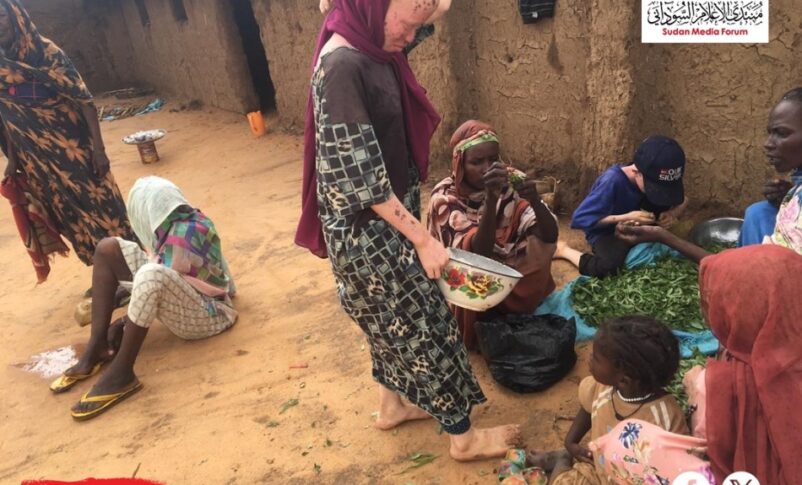WFP reaches famine-hit Zamzam camp after months-long siege
November 14, 2024 (PORT SUDAN) – The U.N. World Food Programme (WFP) has delivered desperately needed food and nutrition assistance to Sudan’s Zamzam camp, marking the first aid delivery in months to the famine-stricken camp in North Darfur.
Zamzam, home to thousands of people displaced by conflict, has been under siege by the Rapid Support Forces (RSF) since fighting erupted in April between the paramilitary group and the Sudanese army. The siege has severely restricted humanitarian access, pushing the camp’s residents to the brink of starvation.
“These convoys are a lifeline for the people of Zamzam,” said Eddie Rowe, WFP Sudan Country Director. “They must be allowed to reach those in need quickly and safely.”
WFP dispatched three convoys carrying vital aid. The first crossed the Adre border from Chad on Nov. 9, carrying assistance for 12,500 people. Two more convoys departed Port Sudan on Nov. 12, one bound for Zamzam with aid for 27,400 people, including nutritional supplements for malnourished children, and another headed to Kadugli in South Kordofan.
The aid delivery comes after the Sudanese government announced on Nov. 13 that the Adre corridor, a critical route for humanitarian assistance into Darfur, would remain open for another three months.
“We welcome the decision to keep the Adre corridor open,” Rowe said. “It is a vital lifeline to get urgent assistance to desperate families in Darfur.”
WFP has provided food assistance to 7 million people in Sudan this year but warns that sustained access is crucial to preventing a hunger catastrophe of “historic magnitude.”
The conflict has triggered one of the world’s largest hunger crises, with millions facing severe food insecurity.

